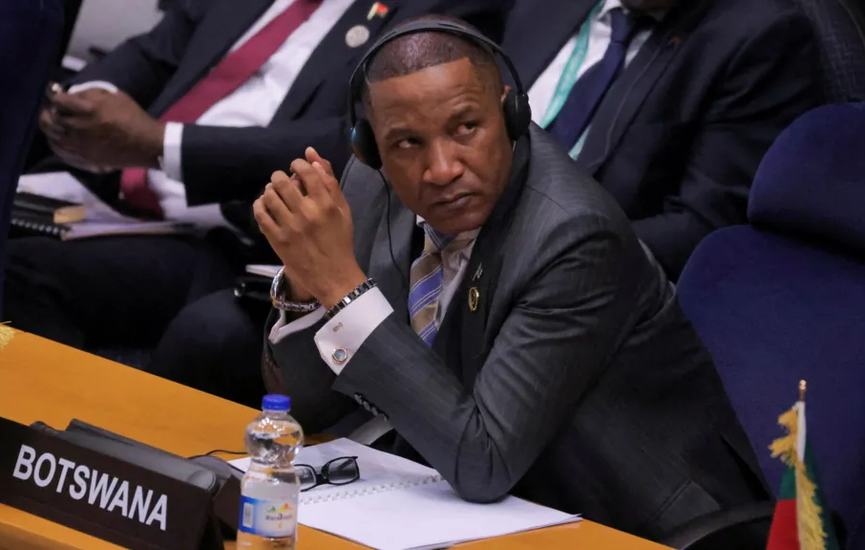Botswana has declared a public health emergency amid a severe shortage of essential medicines and medical equipment, prompting President Duma Boko to unveil a multimillion-dollar plan to overhaul the nation's supply chain with military oversight. In a televised address, Boko acknowledged the financial strain facing the country, noting that managing the crisis would be “highly price sensitive due to our limited coffers.” The government has approved 250 million pula ($18.3 million) in emergency funding to address the crisis, with the first military-dispatched trucks scheduled to deliver supplies to remote areas by Monday evening.
The crisis comes at a time of economic hardship for Botswana, whose 2.5 million citizens are grappling with rising poverty and unemployment following a downturn in the global diamond market—an industry central to the nation’s economy. The situation has been exacerbated by cuts to U.S. aid, which previously funded a third of Botswana’s HIV response. Earlier this month, the health ministry reported debts exceeding 1 billion pula ($55.2 million), largely due to patients being referred to private hospitals for services unavailable in the public sector. Health Minister Dr. Stephen Modise listed critical shortages in treatments for cancer, HIV, and tuberculosis, and announced the suspension of referrals for elective surgeries and non-urgent medical procedures, including organ transplants.
Despite the gravity of the situation, the government remains optimistic. “I have no doubt that soon, very soon, we will overcome. This is definitely not insurmountable,” Dr. Modise assured the public. President Boko, a Harvard-trained lawyer who made history by leading the Umbrella for Democratic Change (UDC) to a landslide victory last year—ending 58 years of single-party rule—had pledged to diversify Botswana’s economy and reduce its dependence on diamonds. His administration now faces a critical test in delivering on that promise while navigating a health crisis that threatens the well-being of the nation.
International concern is mounting. UNICEF has called for urgent action to protect children’s health and futures, highlighting malnutrition as a daily struggle in towns like D’Kar. “The president’s call underscores what we witness on the ground,” the agency stated, reinforcing the need for swift and coordinated intervention. As Botswana mobilizes its resources and military logistics to stabilize the health system, the unfolding emergency reveals both the fragility of its infrastructure and the resilience of its leadership in the face of adversity.
